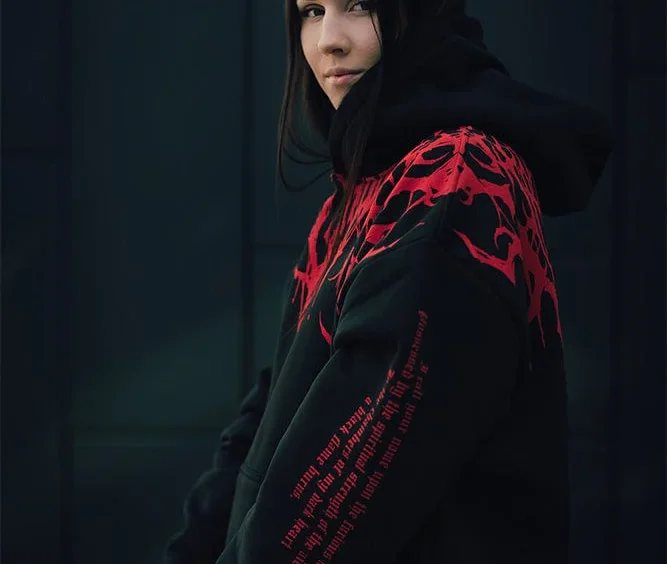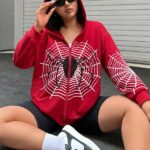Implications for the Fashion Industry

The Evolution of Fashion Trends
In the ever-evolving landscape of the fashion industry, staying ahead of the curve is paramount. From haute couture to streetwear trends, the implications for the fashion industry are vast and varied. Buy now Celine hoodie This article delves into the intricacies of the fashion world, exploring its impact on culture, economy, and consumer behavior.
Fashion trends are not just about clothing; they reflect societal shifts, cultural influences, and individual expression. Over the years, we’ve witnessed the evolution of various fashion movements, each leaving a distinctive mark on the industry. From the flamboyant styles of the 80s to the minimalistic approach of the 21st century, fashion trends are in a perpetual state of flux.
Influencers and Social Media
In today’s digital age, social media platforms like Instagram, TikTok, and Pinterest play a pivotal role in shaping fashion trends. Influencers with large followings have become tastemakers, dictating what’s hot and what’s not. Brands collaborate with influencers to reach wider audiences and capitalize on their influence to drive sales and brand recognition.
Sustainability and Ethical Fashion
As environmental consciousness grows, so does the demand for sustainable and ethical fashion practices. Consumers are increasingly mindful of the environmental and social impact of their purchases. From eco-friendly materials to fair labor practices, brands are under pressure to adopt sustainable initiatives throughout their supply chains.
The Global Fashion Economy
The fashion industry is a multibillion-dollar global enterprise, spanning continents and cultures. From luxury fashion houses to fast-fashion retailers, the global fashion economy drives innovation, creates jobs, and shapes consumer preferences. Click here
Fashion Capitals and Cultural Influence
Cities like Paris, Milan, New York, and London serve as epicenters of fashion, hosting iconic fashion weeks that set the tone for the industry. These fashion capitals not only showcase the latest collections but also celebrate diversity and creativity within the fashion landscape. Each city brings its unique flair and cultural perspective to the forefront of global fashion.
E-Commerce and Digital Innovation
The rise of e-commerce has revolutionized the way consumers shop for fashion. Online retail giants and boutique e-stores offer unparalleled convenience and accessibility, allowing consumers to browse and purchase fashion items with a few clicks. With advancements in augmented reality and virtual fitting rooms, digital innovation continues to redefine the online shopping experience.
Consumer Behavior and Brand Loyalty
Understanding consumer behavior is key to navigating the intricacies of the fashion industry. From demographic preferences to purchasing habits, consumer insights drive marketing strategies and product development initiatives.
Personalization and Customer Experience
In an era of personalization, consumers crave unique experiences tailored to their individual tastes and preferences. Brands that prioritize customer experience and offer personalized recommendations stand to foster stronger connections with their audience and cultivate brand loyalty.
Brand Authenticity and Storytelling
In a crowded marketplace, authenticity sets brands apart from the competition. Consumers resonate with brands that share their values and tell compelling stories. From heritage craftsmanship to philanthropic endeavors, authentic brand narratives create emotional connections that extend beyond product offerings.
The Future of Fashion
As we look ahead, the future of fashion is ripe with possibilities and challenges. Technological advancements, cultural shifts, and sustainability imperatives will continue to shape the industry landscape. Adapting to change and embracing innovation will be essential for fashion brands to thrive in an ever-changing marketplace.
Technology and Wearable Tech
The integration of technology into fashion opens new avenues for creativity and functionality. From smart textiles to wearable tech gadgets, fashion designers are exploring innovative ways to enhance the user experience and redefine fashion aesthetics.
Circular Fashion and Closed-Loop Systems
The concept of circular fashion emphasizes resource efficiency and waste reduction throughout the product lifecycle. Closed-loop systems promote recycling, upcycling, and circular design principles, minimizing environmental impact and maximizing sustainability.
The implications for the fashion industry are far-reaching and multifaceted. From trend forecasting to supply chain management, every aspect of the fashion ecosystem plays a pivotal role in shaping the industry’s trajectory. By embracing innovation, sustainability, and consumer-centric strategies, fashion brands can navigate the complexities of the industry and thrive in a dynamic global marketplace.


 English
English 
